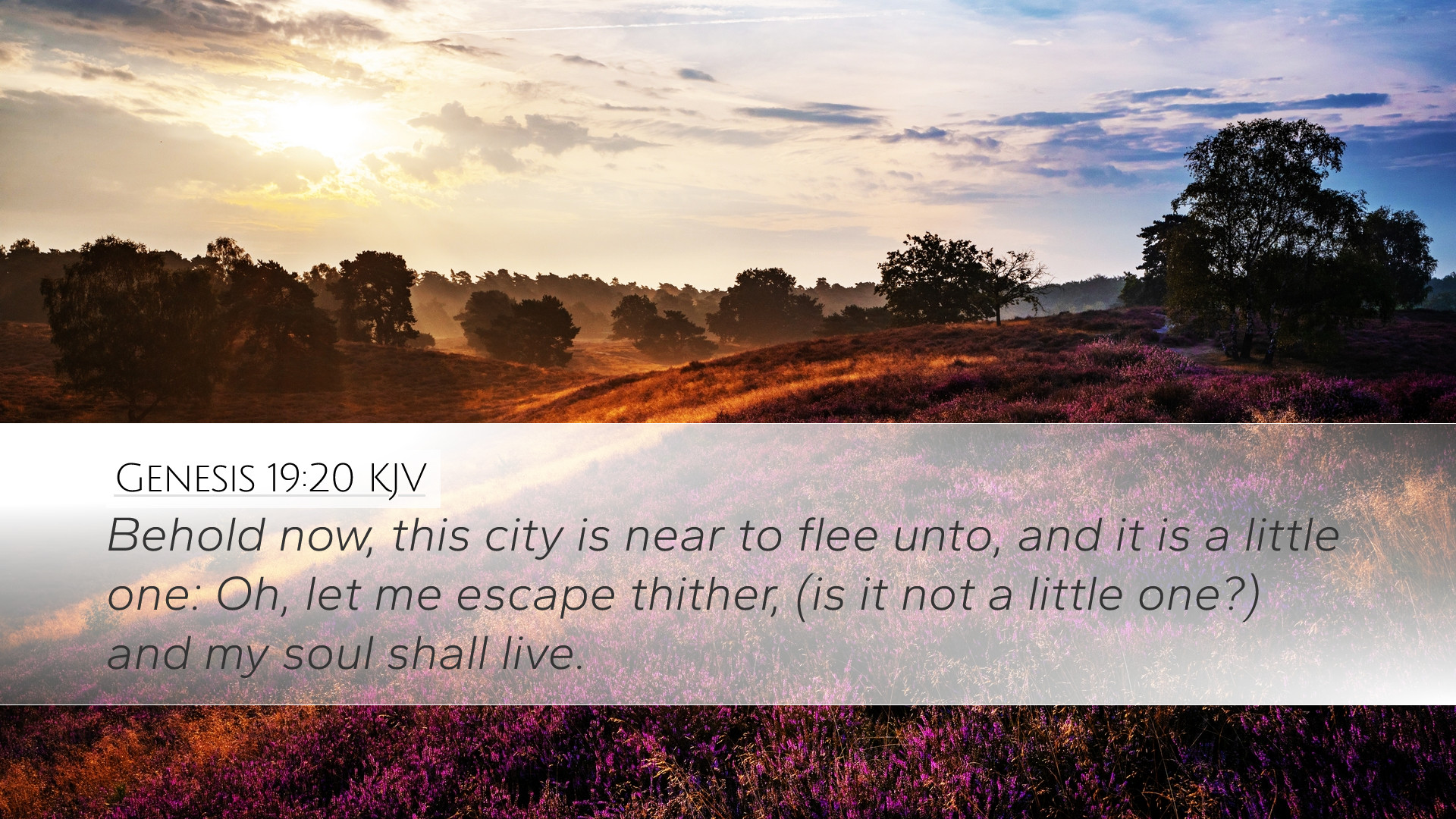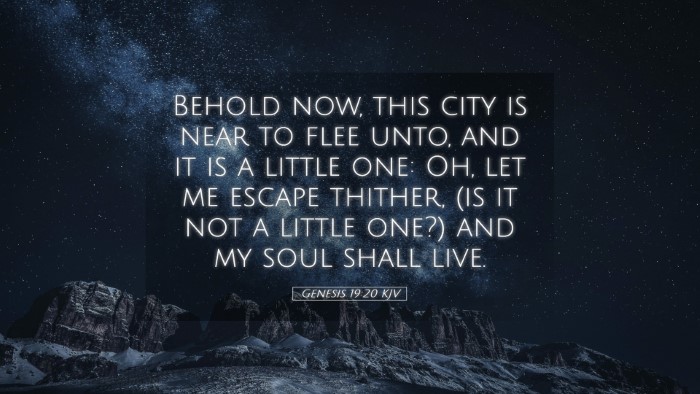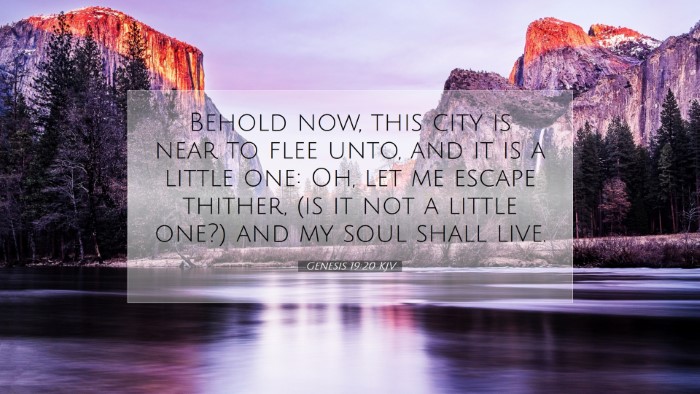Commentary on Genesis 19:20
Genesis 19:20 states: "Behold now, this city is near to flee unto, and it is a little one: Oh, let me escape thither (is it not a little one?) and my soul shall live." This plea from Lot highlights several theological and moral lessons applicable to believers today.
Contextual Overview
The preceding chapters recount the destruction of Sodom and Gomorrah due to their extreme wickedness. Lot, being the one simply righteous man in the city, finds himself in a position of desperation as angels visit his home. Concerned for his safety and the safety of his family, he pleads for refuge. This verse captures Lot's request to flee to Zoar, a city that offers not only physical safety but also symbolizes the mercy of God in the midst of judgment.
Interpretative Insights
Various public domain commentaries provide depth to the understanding of this passage:
-
Matthew Henry: Henry emphasizes the grace bestowed upon Lot amidst a wicked city. He points out that Lot's reference to Zoar as a "little one" illustrates both his humility and his desperate desire for escape. This shows how God provides a way out for the righteous, even in dire circumstances. Henry writes, "Though Lot lived in a city filled with iniquity, he still had hope that he could be spared through divine intervention."
-
Albert Barnes: Barnes offers a linguistic study of the term "little one," interpreting it as representing Lot's lowly ambition. He suggests that this reflects the human condition to seek mere survival rather than abundant life. Furthermore, the plea underscores God’s willingness to accommodate our modest aspirations while still working towards our ultimate salvation. Barnes highlights the mercy of God in allowing Lot to flee, indicating that God often leads us to safety when we earnestly seek Him.
-
Adam Clarke: Clarke adds a historical perspective, noting that Zoar was spared from destruction through God’s mercy specifically for Lot's sake. Clarke stresses that there are times when God’s judgments are tempered with grace, a lesson illustrated in this narrative. Furthermore, he interprets Lot's concern for his life as an acknowledgment of human frailty. This speaks powerfully to how believers ought to trust in God’s providence, recognizing both the dire consequences of sin and the patience of God towards repentant souls.
Theological Reflections
This verse, while recounting an event in Lot’s life, also illustrates broader theological truths:
-
Human Desperation and Divine Mercy: Lot's plea for safety demonstrates the instinctual human desire for refuge during times of impending doom. The city's destruction represents judgment, while Lot's request for Zoar showcases the reality of divine mercy. It serves as a reminder that in our moments of greatest need, God is ready to offer safety and compassion.
-
Righteousness amid Wickedness: Lot, as the "righteous" man in a corrupt society, illustrates the challenge faced by believers. His request reflects the hope that even amid societal decay, God preserves the faithful. This raises questions for believers about how to navigate life in a morally declining world, emphasizing the importance of seeking God’s guidance for direction and protection.
-
Spiritual Refuge: Zoar, though a “little” city, represents a place of shelter. In similar fashion, believers are offered a spiritual refuge in Christ. The New Testament often imagery relates back to the Old Testament, where Jesus becomes our Zoar, the One through which we find safety and life everlasting.
Practical Applications
The implications of Genesis 19:20 have practical significance for modern believers in various contexts:
-
In Times of Crisis: Like Lot, believers may encounter crises that threaten their spiritual and physical well-being. This passage encourages sincere prayer and reliance on God’s provision for safety and guidance in emergencies.
-
Community Importance: Lot’s call for a city of refuge suggests the necessity of community and support among believers. The church functions as a Zoar where individuals can find solace amidst a tumultuous world. Building community is crucial for sustaining faith and navigating personal crises.
-
Trust in God's Plan: Lot’s humble request reflects the need for individuals to trust in God's broader plan, even when circumstances appear dire. Believers are reminded that God does not abandon His people and that every trial offers an opportunity to experience His grace.
Conclusion
Genesis 19:20 serves as a potent reminder of divine mercy extended to the needy and righteous amid judgment. The insights gleaned from public domain commentaries by notable theologians like Matthew Henry, Albert Barnes, and Adam Clarke provide layered interpretations of Lot's plea for refuge. These reflections resonate deeply with modern believers, encouraging heartfelt dependency on God. In times of spiritual and physical danger, Lot’s urgent appeal assures us that God remains our ultimate source of shelter and salvation.


